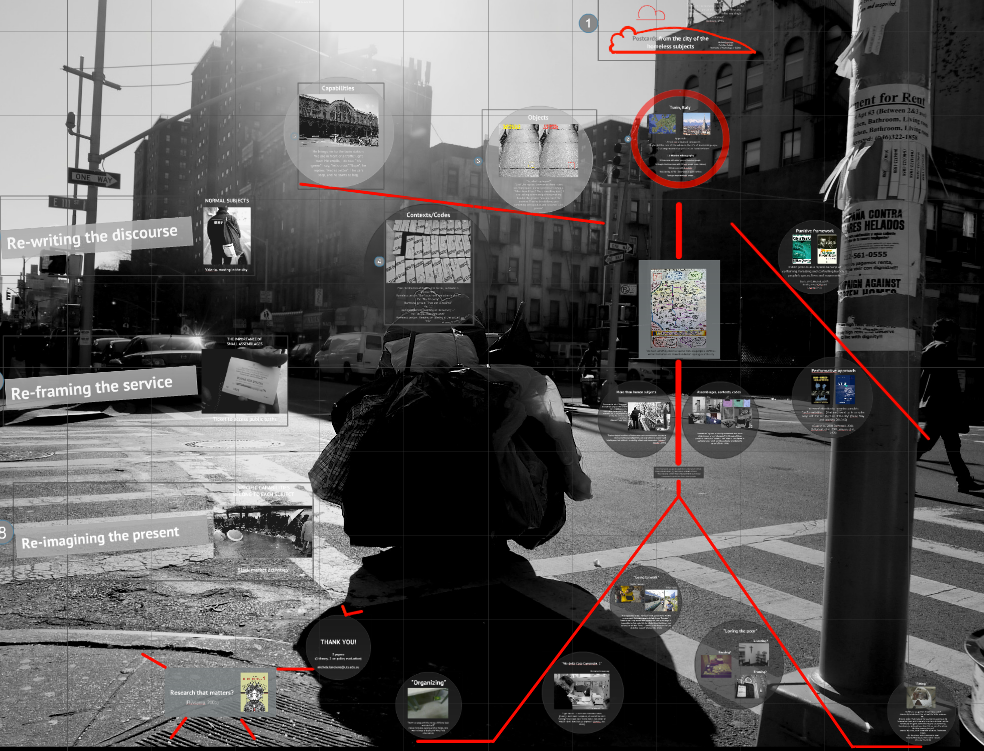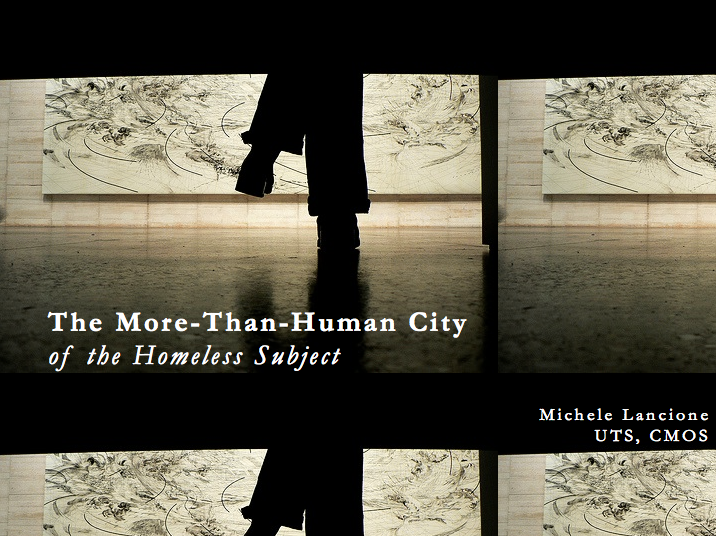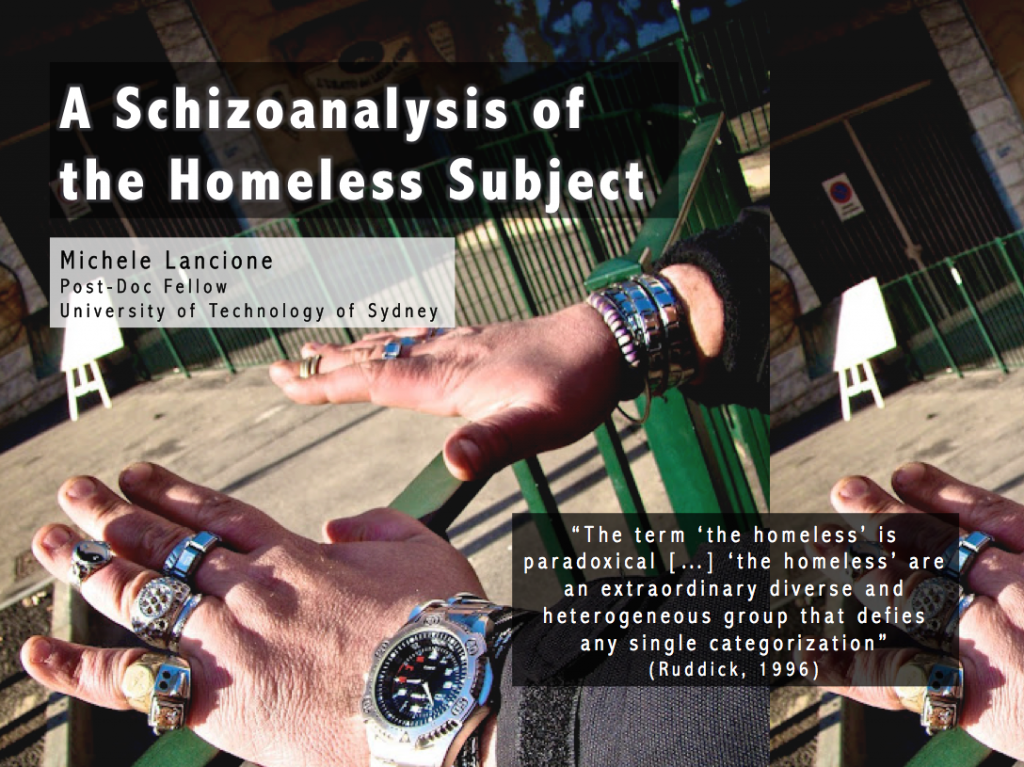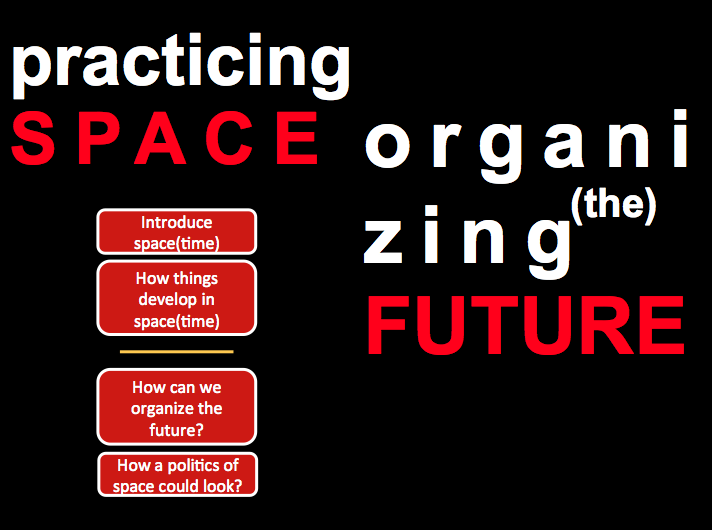Tomorrow I will present my work on Homelessness at Macquarie University. Here you can download the flyer of the event, and below you can watch the full presentation (done with Prezi).
More on my research on homelessness, here.
“Postcards from the city of the homeless subject”
The presentation will begin showing some of the materials collected during a ten months ethnographic fieldwork with homeless people in Turin, Italy. These materials will be presented in forms of interconnected stills, or postcards, picturing the relational entanglements that take place between homeless people and the city. The main aim of the presentation is indeed to blur the canonical distinction between the subject and the city: homeless people are neither only subjects who performs the city (as the “performative” scholarships claim), nor only subjected to the policies of the city (as the “punitive approach” tells), but they constitute their complex and heterogeneous subjectivities with the wider urban environment to which they relate. Engaging with the work of Deleuze and Guattari as well as with critical assemblages thinking, the notion of subjectivity adopted in the research will be sketched and the meaning of the postcards unfolded. In this sense, and through the help of more ethnographic materials, three key-points will be highlighted. First, the role of urban objects in affecting homeless people projects and desires. Second, the role of normative policies in creating negative affective atmosphere for homeless people. Third, the importance of recognizing homeless people own capabilities. The research implications and the political consequences of the proposed approached will be sketched in the final phase of the presentation.




